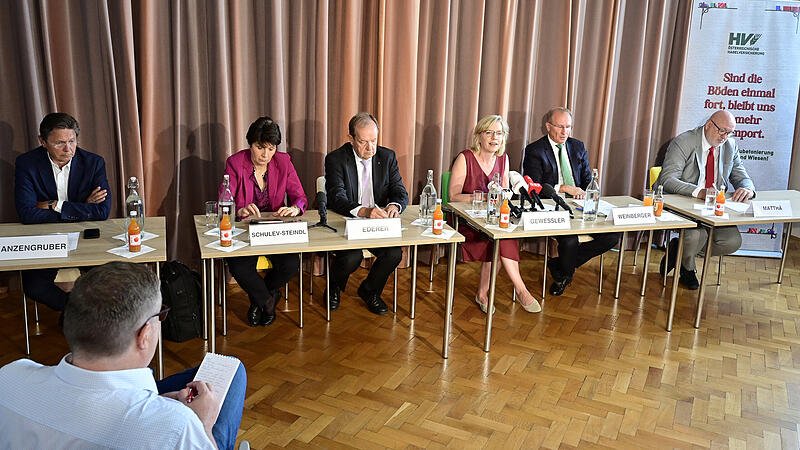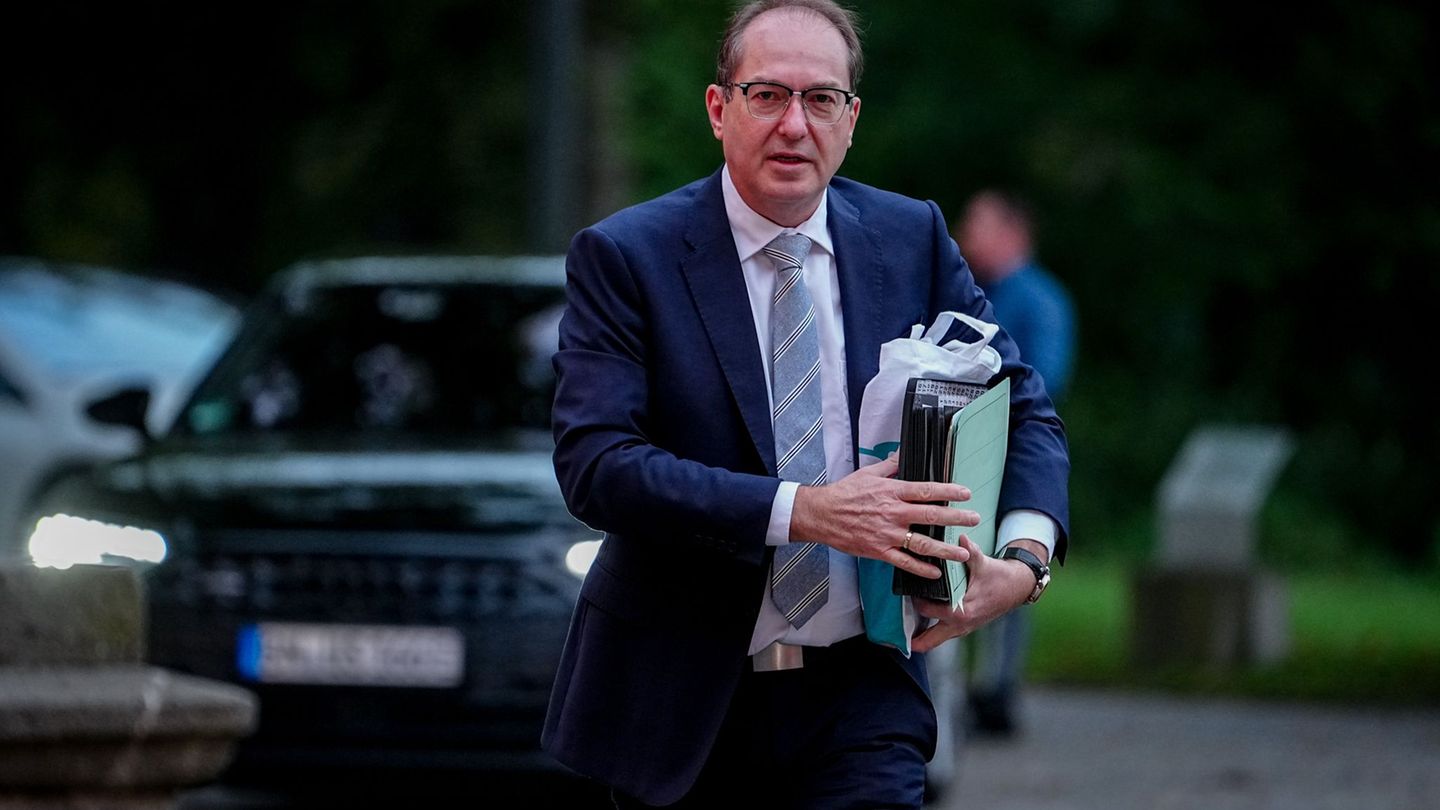On day five of the current heat wave, Environment Minister Leonore Gewessler (Greens) introduced the climate crisis, but the actual motto was “act”, said ex-Verbund boss Wolfgang Anzengruber – “we’ve talked and talked” enough. According to Gewessler, it is necessary to have something in common.
This video is disabled
Please activate the categories Performance Cookies and Functional cookies in your cookie settings to view this item. My cookie settings
Speed limit and advertising ban demanded
“Nobody can manage this major task of ‘climate protection’ alone,” emphasized the minister in her introductory speech, meaning that the actors must work together. “We need all layers of society,” Anzengruber said. When it comes to climate protection, the concentration would be too much on energy, although it was “staggering with the efficiency with which we use energy”. A negative example can be found in the combustion engine, for example, which the EU has just put to an end by 2035. And again it was time to act: “Do we have to wait 13 years for the ban to take effect?” asked Anzengruber and immediately gave the answer himself. Speed limits for automobiles could already be introduced or an advertising ban for large-volume cars. And then you shouldn’t talk about renunciation, because “otherwise we would give up our future”.
BOKU Rector: Climate protection should be in the constitution
The rector of the University of Natural Resources and Life Sciences (Boku), Eva Schulev-Steindl, also did not want to talk about renunciation with regard to the demand to include climate protection in the constitution. Although there are voices that would deny the usefulness of such a project, the expert for constitutional and environmental law countered that clear framework conditions are necessary for the energy transition. A Paris climate agreement is not enough, if states do not meet their climate goals, there are no consequences. “It therefore makes sense to enshrine certain key data in the constitution,” said Schulev-Steindl, and proposed the remaining 1.5-degree-compatible greenhouse gas budget – a “long-term target from which a reduction path can be derived”, by the federal government and countries.
Grawe: “We feel the effects of the climate crisis very clearly”
“We are clearly feeling the effects of the climate crisis on the insurance side,” said Othmar Ederer, from the Grazer Mutual Insurance (Grawe) asset management. In addition to legal requirements, the climate protection that is so necessary also requires the private financial sector, for which the expert responsible for natural disasters and green finance spoke. “There is a clear commitment to ‘green finance’ in the Austrian financial sector,” says Ederer. One wants to orient the business towards climate goals, but in the industry one quarrels a little with the legislation, “which marches ahead without also supplying the taxonomy” – this should also “be legible and liveable, and not just by a handful of experts be understood”. In any case, the insurance companies have 120 billion euros in capital that can be invested and reinvested.
For ÖBB boss Andreas Matthä, his profession is dedicated to traffic, the permanent major construction site for domestic climate protection. This is a “significant emitter”, so a traffic turnaround is needed. “You won’t be surprised that I’m promoting the rail system,” he said, but switching to this is a “quick lever.” The ÖBB have targeted 2030 as a target for CO2 neutrality in the field of mobility, and they are also increasing the performance of the railways with the “expansion of the infrastructure, new vehicles and digitization. Matthä also addressed the multitude of current crises, However, the climate crisis is the one “that will continue to occupy us in the long term”, even if it is not currently the focus.
One must therefore draw strong attention to the climate crisis, because “if we do nothing, it will ultimately mean collective suicide,” warned hail insurance boss Kurt Weinberger. The special insurer for agriculture struggled with land use in Austria, because no other country in Europe would act in this way, said Weinberger. From the former land, “the highest supermarket area per capita and the longest street network with 15 meters per capita emerged. The other side of the undesirable development is a vacancy of 40,000 hectares, that is the entire area of the municipality of Vienna”. If concrete were to continue at the current rate, Austria’s agricultural areas would no longer exist in 2222.
Source: Nachrichten




